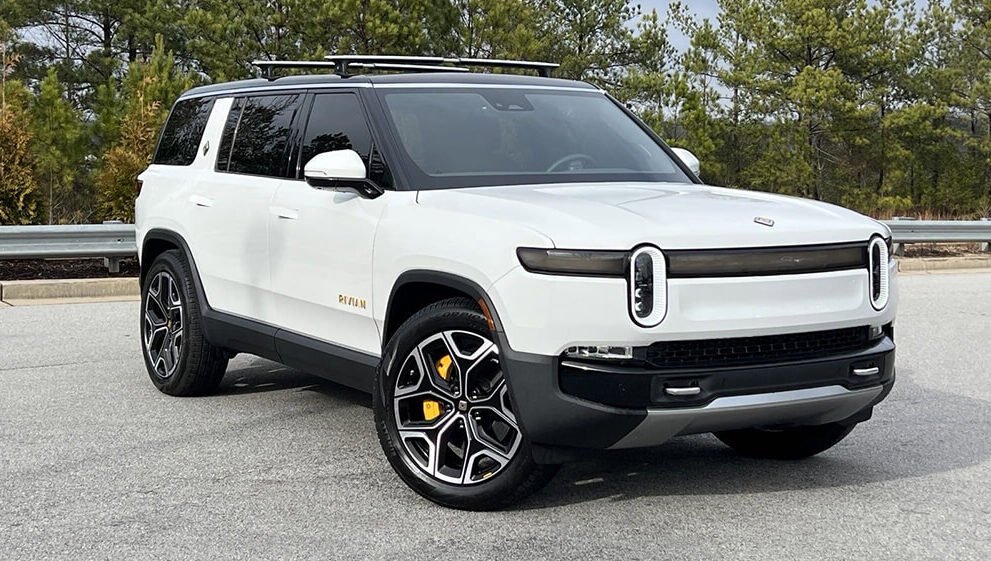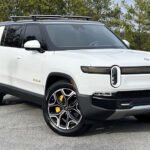Electric Car Leasing Guide 2025: Which Model to Choose for Maximum Value Now for You

Electric Car Leasing Guide 2025: Which Model to Choose for Maximum Value
Electric vehicle leasing has become increasingly attractive in 2024, offering consumers access to cutting-edge technology without the long-term commitment of ownership. With federal tax credits, manufacturer incentives, and rapidly evolving EV technology, leasing presents compelling advantages for many drivers considering the switch to electric mobility.

Why Lease an Electric Vehicle in 2025?
Tax Credit Advantages
Federal electric vehicle tax credits for new EVs top out at $7,500 and $4,000 for used EVs in 2024, and your bank or the car manufacturer’s finance company can take a $7,500 tax credit for EV leases, and they might discount your lease accordingly. This immediate benefit makes leasing particularly attractive, as lessees can benefit from the full tax credit regardless of their personal tax situation.
Technology Evolution Protection
Electric vehicle technology advances rapidly, with new battery chemistries, charging capabilities, and software features emerging regularly. Leasing allows drivers to upgrade to the latest technology every 2-3 years without worrying about obsolescence or depreciation concerns that affect EV ownership.
Lower Monthly Payments
Leasing typically offers lower monthly payments compared to financing, making premium electric vehicles more accessible to a broader range of consumers. This advantage is particularly pronounced with luxury EVs, where lease payments can be substantially lower than loan payments.
Maintenance and Warranty Coverage
Most lease terms align with manufacturer warranties, meaning lessees avoid major repair costs and maintenance uncertainties. Electric vehicles have significantly fewer moving parts than traditional combustion engine cars. There are no oil changes, fewer brake replacements (thanks to regenerative braking), further reducing maintenance requirements during the lease period.

Best Electric Car Lease Deals in 2025
Budget-Friendly Options
Hyundai Kona Electric: Lease offer: $3,999 down and $209/month for 24 months. MSRP: $38,425. The Kona Electric represents exceptional value with its comprehensive feature set and competitive pricing. The Hyundai Kona Electric crossover has one of the lowest starting prices in the segment. Yet, it’s loaded with standard features, making it a great value, especially with this deal’s low monthly payments.
Chevrolet Equinox EV: Chevrolet is offering rebates on the Blazer EV, Equinox EV, and Silverado EV of either $1000 or $1250, dependent on the buyer’s Costco membership tier. The Equinox EV provides mainstream appeal with competitive lease terms and substantial manufacturer incentives.
Mid-Range Performance Leaders
Ford Mustang Mach-E: Ford offers a $389 per month lease for 36 months with an initial payment of $5,539 for a 2024 Mustang Mach-E Premium AWD with an extended-range battery. This performance-oriented crossover delivers sporty handling and impressive range capabilities.
Hyundai IONIQ 5: You can find comprehensive information and reviews about popular electric vehicles, such as the 2025 Hyundai IONIQ 5 The IONIQ 5 combines innovative design with ultra-fast charging capabilities and competitive lease terms.
Luxury Segment Options
Premium electric vehicles often provide the most compelling lease values due to higher depreciation rates and manufacturer incentives. Luxury EVs like the Genesis Electrified G80, BMW iX, and Mercedes EQE offer sophisticated technology and comfort features at accessible lease payments.

Factors to Consider When Choosing an Electric Lease
Range Requirements
Evaluate your daily driving patterns and longest regular trips to determine necessary range. Most current EVs offer 250-400 miles of range, sufficient for the majority of drivers’ needs. Consider that range anxiety, charging infrastructure, and higher upfront costs might concern some when selecting your ideal model.
Charging Infrastructure Access
Assess your home charging options and workplace charging availability. Fast-charging network access varies by manufacturer, with Tesla’s Supercharger network being the most comprehensive, though other networks are rapidly expanding.
Lease Terms and Mileage Limits
Lease agreements typically have mileage limits, and exceeding them can result in additional costs. You’ll be charged a set fee for every mile over the limit, typically around 3 to 30 pence per mile. Choose appropriate mileage allowances to avoid excess charges.
Technology and Features
Consider which technology features are most important to you. Advanced driver assistance systems, over-the-air updates, and infotainment capabilities vary significantly between models and manufacturers.
Leasing vs. Buying: Making the Right Decision
When Leasing Makes Sense
Leasing is ideal for drivers who:
- Want access to the latest technology
- Prefer predictable monthly expenses
- Drive within mileage limits
- Value warranty coverage
- Plan to upgrade regularly
When Buying Might Be Better
Long-term leasing on an EV will see you spending substantially more than financing a new model if you’re looking at doing it for more than a decade. Purchase consideration applies when:
- Planning to keep the vehicle long-term
- Driving high annual mileage
- Wanting modification freedom
- Building equity preference

Regional Considerations and Incentives
State and Local Incentives
Many states offer additional EV incentives that can be combined with federal tax credits. California, New York, and Colorado provide substantial rebates and HOV lane access that enhance the leasing value proposition.
Utility Company Programs
Some utility companies offer special EV charging rates or rebates for electric vehicle owners and lessees. These programs can significantly reduce operational costs and improve the overall value of electric vehicle leasing.
Top Electric Vehicle Categories for Leasing
Compact Crossovers
Models like the Hyundai Kona Electric, Chevrolet Bolt EUV, and Nissan Ariya provide practical size, competitive range, and attractive lease terms. These vehicles offer excellent value for urban and suburban driving.
Mid-Size Sedans
The Tesla Model 3, BMW i4, and Genesis Electrified G80 deliver premium features and performance in the traditional sedan format. These vehicles often feature sophisticated technology and comfort amenities.
Full-Size SUVs
For families requiring maximum space, vehicles like the Ford F-150 Lightning, Chevrolet Silverado EV, and BMW iX provide substantial cargo capacity and towing capabilities with competitive lease programs.
Performance Vehicles
Sports-oriented EVs like the Ford Mustang Mach-E GT, Tesla Model S, and Porsche Taycan offer exceptional acceleration and handling characteristics that showcase electric performance advantages.
Financial Considerations and Calculations
Total Cost of Leasing
Calculate the total lease cost including down payment, monthly payments, and any fees. At the end of the lease, lessees will have spent a total of $19,543 to drive the car for three years. Compare this total against financing alternatives and consider the value of included services.
Insurance Considerations
Electric vehicles may have different insurance costs compared to conventional vehicles. Some insurers offer discounts for EVs, while others may charge premiums due to higher repair costs or limited service networks.
End-of-Lease Options
Most leases offer purchase options at predetermined residual values. Evaluate whether the vehicle’s market value exceeds the residual value, potentially creating equity or trade-in opportunities.

Charging Infrastructure and Practical Considerations
Home Charging Setup
Installing home charging equipment may require electrical upgrades and permits. Factor these costs into your decision, though many utilities offer rebates for charging equipment installation.
Public Charging Networks
Research charging network availability in your area and along common travel routes. Network access varies by manufacturer, with some offering complimentary charging periods for lessees.
Workplace Charging
Many employers now provide workplace charging, which can significantly reduce home charging needs and electricity costs. Confirm availability and pricing with your employer.
Future-Proofing Your Electric Vehicle Lease
Technology Upgrades
Choose vehicles with over-the-air update capabilities to ensure your leased vehicle receives the latest features and improvements throughout the lease term.
Charging Standards
Ensure your chosen vehicle supports current and emerging charging standards, including CCS and NACS compatibility for maximum charging network access.
Resale Value Considerations
While lessees aren’t directly affected by depreciation, residual values impact lease pricing. Vehicles with strong resale values typically offer more attractive lease terms.
Making Your Final Decision
Test Drive Requirements
Schedule extended test drives in various conditions to evaluate comfort, performance, and charging experiences. Many dealers offer overnight or weekend test drives for electric vehicles.
Dealer Negotiation
Electric vehicle lease terms are often negotiable, particularly regarding down payments, monthly payments, and included services. Research multiple dealers and compare offers comprehensively.
Timing Considerations
If you want a great deal on an EV, we recommend making a move before the tax credits disappear. Federal and state incentives may change, making current timing potentially advantageous for leasing decisions.

Conclusion: Choosing Your Ideal Electric Lease
Electric vehicle leasing in 2024 offers compelling advantages for many consumers, providing access to advanced technology, lower monthly payments, and protection against rapid depreciation. The combination of federal tax credits, manufacturer incentives, and expanding model availability creates an attractive environment for electric vehicle adoption.
Success in electric vehicle leasing requires careful consideration of your driving patterns, charging infrastructure access, and technology preferences. Despite having higher prices on paper than gas cars, manufacturer incentives can make EV lease deals substantially more affordable and get you way more car for your money.
Whether choosing a budget-friendly Hyundai Kona Electric, a performance-oriented Ford Mustang Mach-E, or a luxury Mercedes EQE, the key is matching vehicle capabilities with your specific needs and preferences. The rapidly evolving electric vehicle market ensures that leasing provides access to the latest innovations while maintaining financial flexibility for future upgrades.
By carefully evaluating the factors outlined in this guide, you can make an informed decision that maximizes the benefits of electric vehicle leasing while minimizing potential drawbacks. The transition to electric mobility has never been more accessible or financially attractive than it is in 2024.





















































































































































































































































































































